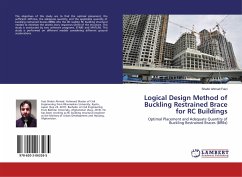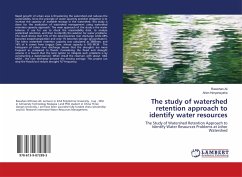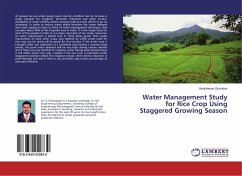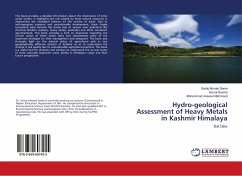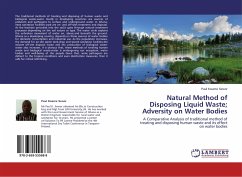
Natural Method of Disposing Liquid Waste; Adversity on Water Bodies
A Comparative Analysis of traditional method of treating and disposing human waste and its effect on water bodies
Versandkostenfrei!
Versandfertig in 6-10 Tagen
27,99 €
inkl. MwSt.

PAYBACK Punkte
14 °P sammeln!
The traditional methods of treating and disposing of human waste and biological waste-water mostly in developing countries are sources of pollutant and pathogens to surface and underground water. In Ghana, most sanitation facilities used are on- and off-sites treatment and disposal. As the leachate percolate into the soil,it goes through natural treatment processes depending on the soil nature or type. The water circle explains the unbroken movement of water on, above,and beneath the ground. Ghana as a developing country, depends on these sources of water bodies for domestic consumption and in...
The traditional methods of treating and disposing of human waste and biological waste-water mostly in developing countries are sources of pollutant and pathogens to surface and underground water. In Ghana, most sanitation facilities used are on- and off-sites treatment and disposal. As the leachate percolate into the soil,it goes through natural treatment processes depending on the soil nature or type. The water circle explains the unbroken movement of water on, above,and beneath the ground. Ghana as a developing country, depends on these sources of water bodies for domestic consumption and industrial use. As the population increases, the demand for on-site septic tank,drop and stored sanitation facilities,the volume off-site disposal waste and the production of biological waste-water also increases. It is obvious that, these methods of treating human waste and biological waste-water is endangering our ecosystem, water bodies and well-being of the people. Given that, some pathogens are defiant to the tropical conditions and even disinfection measures, then it calls for critical rethinking.







